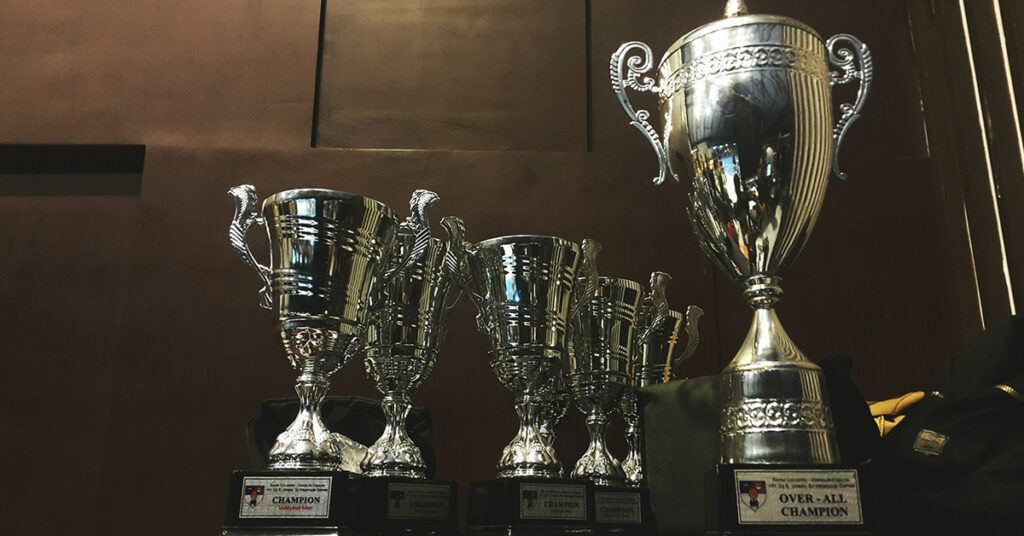- Forschungsspektrum
- Translationale Forschung
- Transversale Translationale Medizin (TTM)
- Operationszentrum für Translationale Medizin (TMOH)
- Büro für Klinisches Projektmanagement (CPMO)
- Zentrum für Klinische und Epidemiologische Untersuchungen (CIEC)
- Luxemburger Zentrum für Klinische und Translationale Forschung (LCTR)
- Integrierte Biobank von Luxemburg (IBBL)
- Disease Modeling & Screening Platform (DMSP)
- Luxgen Genom Zentrum
- Plattform für Forschungspathologie (RPP)
- Forschungsprojekte und klinische Studien
- Unterstützen Sie uns
- Translationale Forschung
News
DII-Forscher glänzen beim EAACI-Jahreskongress
Bitte beachten Sie, dass der Inhalt nur auf Englisch verfügbar ist.
Luxembourg Institute of Health (LIH) scientists were strongly represented at this year’s Annual Congress of the European Academy of Allergy and Clinical Immunology (EAACI) in Valencia
10 Juli 2024
3minuten
- Abteilung für Infektion und Immunität
- Molekulare und Translationale Allergologie
- Translationale und klinische Immunologie

The event, took place from May 31st until June 3rd, where they communicated their successful projects in allergy research conducted in Luxembourg. Four young researchers presented their latest research related to allergic disease mechanisms, microbiome and data treatment.
Naphisabet Wanniang, MD-PhD student in Dr. Kuehn’s group, reported on the ‘Real-life experience with long-term oral immunotherapy (OIT) for nut allergic children: A single center retrospective study from Luxembourg’. She presented clinical data from peanut, tree nut allergic children who underwent OIT for desensitization over a 5 year follow up period at the Immunology, and Allergology department at CHL. Long-term OIT was well tolerated by the majority of the patients and both, clinical and immunological outcome improved with continued therapy. In addition, she identified baseline immune characteristics that determined the OIT outcome, thus refining patient stratification for a precision medicine approach.
Theresa-Maria Boehm, PhD student in the group of Dr. Kuehn, presented a collaborative research project entitled ‘Fecal IgE in Peanut Allergy: Pioneering Evidence and Clinical Implications’ taking place within the context a poster presentation. The study revealed an inverted sensitization pattern for blood and stool-derived IgE antibodies and sequence homologies for bacterial peptides deriving from the gut microbiome and known allergen sequences. The findings provide first evidence that fecal IgE antibodies play a functional role in localized immune responses of the gut that may play a role in the stratification of peanut allergic patients.
Isabela Assugeni, Dr. Kuehn’s PhD student, shared her research entitled ‘Unravelling Cross-Sensitization Patterns in Peanut-Allergic Children to legumes and beyond: Insights from Multiplex Array Analyses’. She presented detailed data on sensitization profiles of peanut allergic children, particularly focusing on legumes. By analyzing complex IgE reactivity patterns from a multiplex array, she was able to stratify the patients into distinct subgroups, pointing to potential groups of clinical reactivity in the wide spectrum of cross-sensitization profiles among peanut-allergic children. Isabela earned the Outstanding Poster Presentation Award for this exceptional output to the scientific community.
Agnieszka Demczuk, PhD student in Prof. Ollert’s group, gave a short oral presentation entitled ‘Cytometry Cluster Annotation and Differential Abundance Suite (CyCadas): interactive and reproducible analysis of cytometry data’. For her excellent scientific communication, Agnieszka received an Outstanding Flash Talk Presentation Award. She introduced a user-friendly tool, which she developed together with her colleagues in the Department of Infection and Immunity, that facilitates analysis of clustered cytometry data. CyCadas enables interactive, efficient and reproducible annotation (i.e. identification of clusters as specific cell types based on their phenotype) of high-resolution cytometry data. It allows for differential abundance analysis of identified cell populations, reducing the time required to analyse complex datasets. CyCadas is an excellent tool for scientists utilising high-resolution cytometry in their research.
Congratulations to the DII teams!
Scientific Contact











